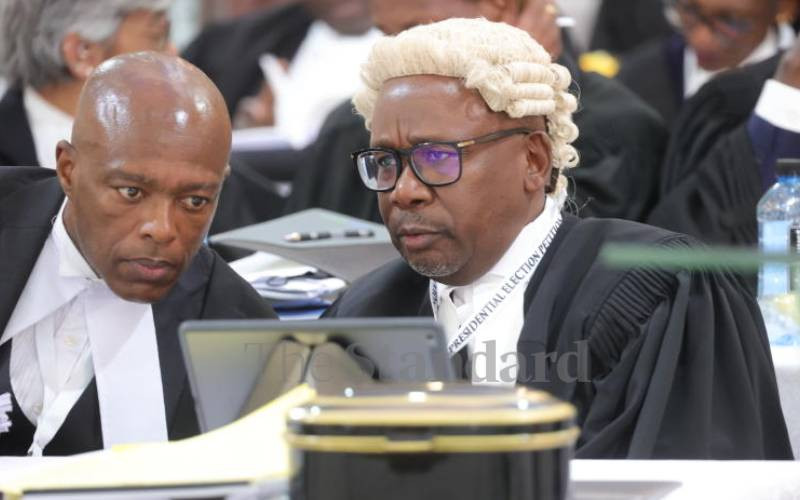×
The Standard e-Paper
Fearless, Trusted News

The Independent Electoral and Boundaries Commission (IEBC) chairman Wafula Chebukati is being unfairly being vilified, his lawyers told the Supreme Court yesterday.
IEBC and Chebukati lawyers Githu Muigai, Kamau Karori, Eric Gumbo, Mahat Somane, Abdikadir Mohamed, and Peter Wanyama relied on numbers, used video clips, evidence by the commission's ICT experts and Returning Officers in their bid to debunk allegations made by Azimio presidential candidate Raila Odinga and his running mate Martha Karua.